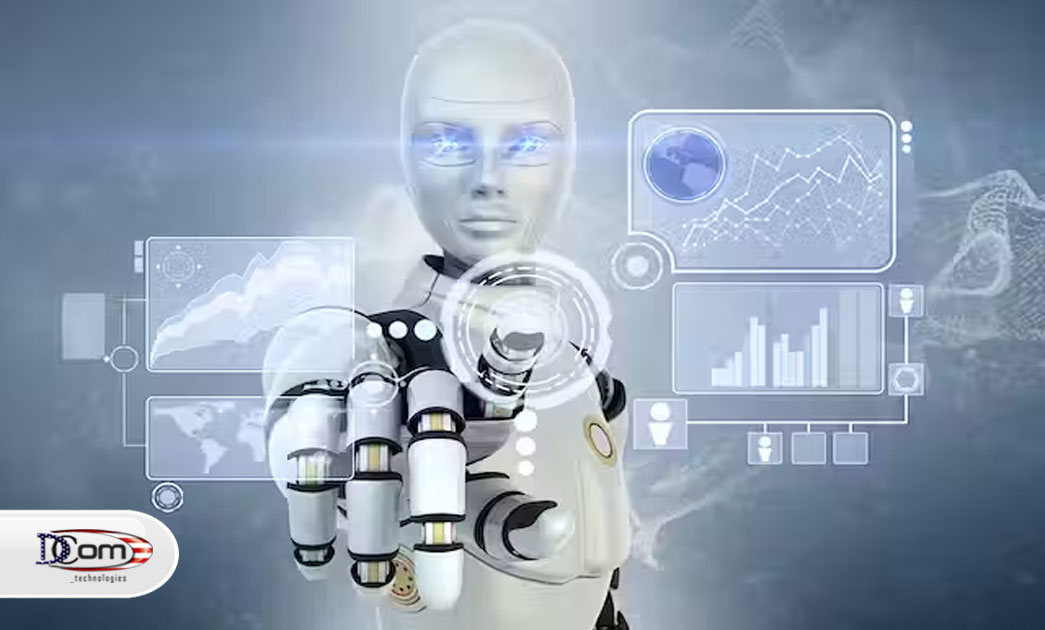Overview:
Artificial Intelligence (AI) has become a game-changer in various industries, and the IT sector is no exception. AI technology is revolutionizing the IT industry by enabling businesses to automate processes, improve decision-making, and enhance cybersecurity.
Here are some following ways AI is transforming the industry:
1. Intelligent Automation:
AI-powered tools and robots can automate repetitive tasks, freeing up human resources for more complex and creative work.
2. Improved Customer Service:
AI chatbots and virtual assistants can offer real-time assistance and personalized support, reducing response times and enhancing customer satisfaction.
3. Predictive Analytics:
AI algorithms can analyze large datasets to identify patterns and make predictions, helping IT professionals make informed decisions and optimize operations.
4. Cybersecurity:
AI technologies, such as machine learning and behavioral analytics, can detect and respond to cyber threats in real-time, minimizing the risk of data breaches.
5. Natural Language Processing:
AI-powered language processing algorithms can understand and interpret human language, enabling more intuitive user interfaces and voice-controlled systems.
6. Intelligent Search:
AI algorithms can enhance search functionality by understanding user intent, providing relevant results, and improving the accuracy of search predictions.
7. IT Operations Management:
AI can automate routine monitoring and maintenance tasks, predicting and preventing potential IT infrastructure issues before they occur, and optimizing system performance.
8. Intelligent Data Management:
AI can analyze and classify large volumes of data, making it easier for IT professionals to manage and organize information more effectively.
9. Intelligent Virtualization:
AI technologies can optimize resources and improve efficiency in virtual environments by dynamically allocating resources based on usage patterns and workload demands.
10. Machine Learning:
AI algorithms can learn and adapt from data without being explicitly programmed, enabling IT systems to continuously improve and optimize performance.
11. Intelligent Decision-Making:
AI technologies can analyze complex data sets, identify patterns, and generate insights, helping IT professionals make data-driven decisions.
12. Automation in DevOps:
AI can automate software development and deployment processes, enabling faster, more efficient release cycles and reducing manual errors.
13. Enhanced Data Security:
AI can detect and mitigate potential security threats by monitoring network traffic in real-time, identifying anomalies, and taking proactive measures to prevent attacks.
14. Intelligent Network Management:
AI can optimize network performance by analyzing network traffic patterns, predicting congestion, and dynamically adjusting routing.
15. Improved Data Privacy:
AI can assist in identifying and anonymizing personal data, helping businesses comply with privacy regulations such as GDPR and CCPA.
Conclusion:
AI is transforming the IT industry by automating processes, enhancing customer service, improving decision-making, bolstering cybersecurity, enabling natural language processing, optimizing operations management, enhancing data management and virtualization, utilizing machine learning, supporting intelligent decision making, automating DevOps, improving data security and network management, and ensuring data privacy. As AI continues to advance, it is expected to have an even greater impact on the IT industry, reshaping workflows, improving efficiency, and driving innovation.










